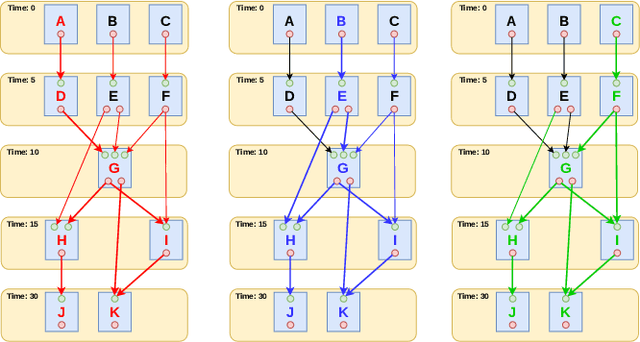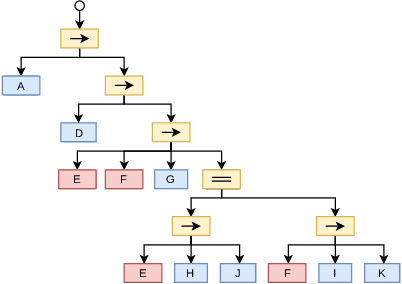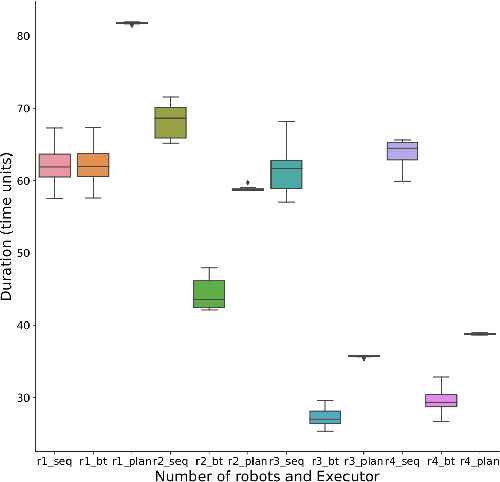Optimized Execution of PDDL Plans using Behavior Trees
Paper and Code
Jan 11, 2021



Robots need task planning to sequence and execute actions toward achieving their goals. On the other hand, Behavior Trees provide a mathematical model for specifying plan execution in an intrinsically composable, reactive, and robust way. PDDL (Planning Domain Definition Language) has become the standard description language for most planners. In this paper, we present a novel algorithm to systematically create behavior trees from PDDL plans to execute them. This approach uses the execution graph of the plan to generate a behavior tree. The most remarkable contribution of this approach is the algorithm to build a Behavior Tree that optimizes its execution by paralyzing actions, applicable to any plan, taking into account the actions' causal relationships. We demonstrate the improvement in the execution of plans in mobile robots using the ROS2 Planning System framework.
 Add to Chrome
Add to Chrome Add to Firefox
Add to Firefox Add to Edge
Add to Edge